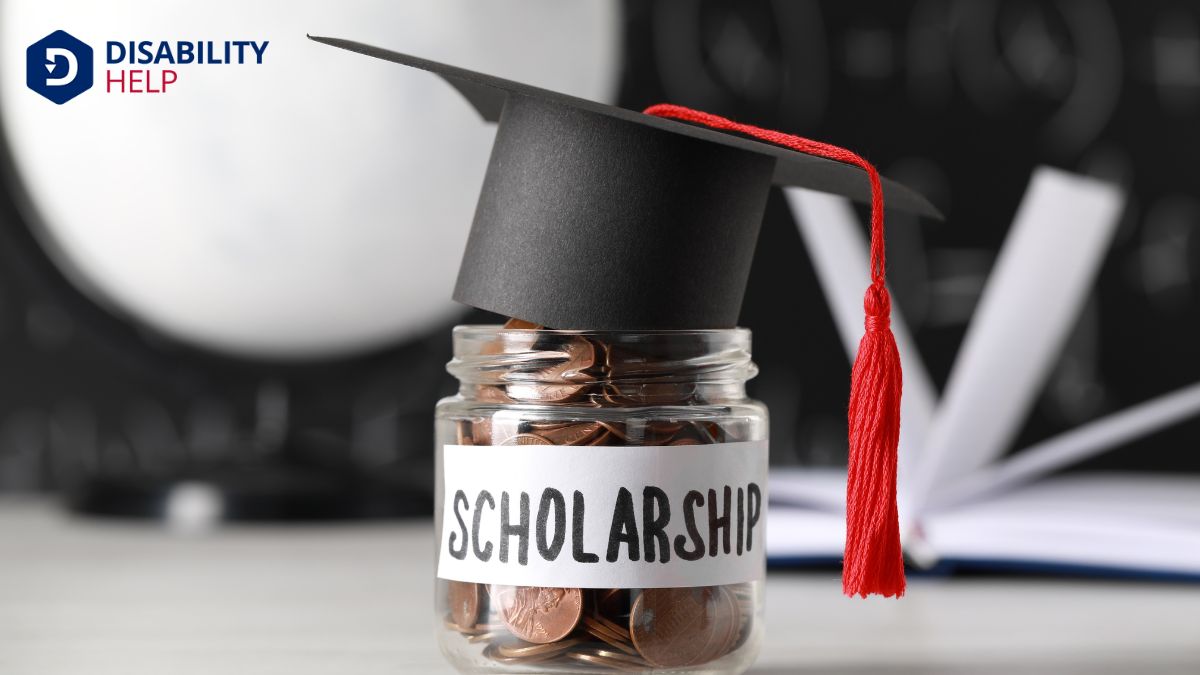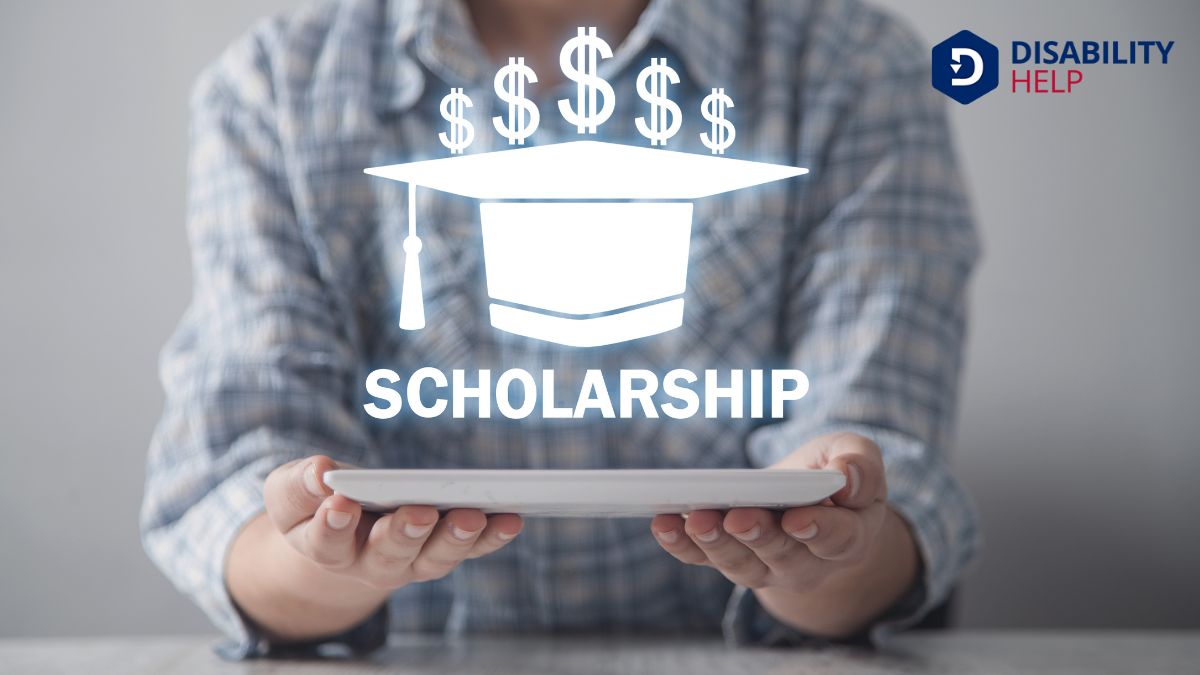Yes, there are scholarships tailored for students with disabilities. These scholarships help ease financial stress, allowing students to focus more on their studies. They come in various forms, including merit-based, need-based, and those targeting specific disabilities. Resources like online databases and disability-specific organizations make finding scholarships easier. Understanding eligibility and crafting strong applications are key steps. If you’re curious, there's more to explore on how these scholarships empower educational advancement.
Key Takeaways
- Scholarships exist specifically for students with disabilities, aiding in financial support for higher education.
- Merit-based and need-based scholarships are available to students with disabilities to help alleviate financial burdens.
- Disability-specific scholarships cater to students with conditions like visual or hearing impairments.
- Online databases and disability organizations provide resources to find scholarships tailored to disabilities.
- Eligibility often requires proof of disability, personal statements, and meeting academic performance standards.
Understanding the Importance of Scholarships for Students With Disabilities

Because education can be a gateway to opportunity, scholarships for students with disabilities play an essential role in leveling the playing field.
It's understood that financial barriers often hinder access to higher education, especially for those facing additional challenges. Scholarships help alleviate financial stress, allowing students to focus on their studies and personal growth.
Types of Scholarships Available for Students With Disabilities
When it comes to scholarships for students with disabilities, there's a wide array of opportunities designed to meet diverse needs.
We can explore merit-based scholarships that reward academic excellence, encouraging students to aim high. There are also need-based scholarships, which provide financial assistance based on a family's economic situation.
In addition, some scholarships specifically target disabilities, offering support to students with certain conditions like visual or hearing impairments.
We might also find scholarships offered by organizations dedicated to specific disabilities or industries. These organizations often award funds to help students pursue careers within their fields.
Moreover, some scholarships aim to promote diversityThe inclusion of individuals from a wide range of backgrounds, including people with disabilities. and inclusionThe practice of creating environments in which any individual or group can be and feel welcomed, res..., encouraging students with disabilities to engage in specific educational pursuits.
Each type of scholarship opens doors to educational advancement and empowermentThe process of gaining control, authority, and power over one’s life, often used in the context of....
How to Find Scholarships for Students With Disabilities
Let's explore the best ways to find scholarships for students with disabilities.
We can start by using online scholarship databases, which offer a wide range of opportunities tailored to various needs.
Additionally, reaching out to disability-specific organizations and consulting with financial aid offices can provide valuable guidance and resources.
Online Scholarship Databases
A multitude of online scholarship databases can be invaluable resources for students with disabilities seeking financial aid. They provide quick access to a vast array of scholarships tailored to diverse needs and circumstances.
Let's navigate these databases with confidence. First, we should create a profile highlighting our academic achievements, interests, and disability specifics. This helps match us with the best opportunities.
Websites like Fastweb, Scholarships.com, and Cappex are user-friendly and frequently updated. These platforms allow us to filter searches based on eligibility criteria, ensuring we find scholarships we qualify for.
Disability-Specific Organizations
While online scholarship databases provide a broad range of opportunities, focusing on disability-specific organizations can greatly enhance our search for financial aid. These organizations often offer scholarships tailored to various disabilities, ensuring that the unique needs of students like us are acknowledged and supported.
By connecting with these groups, we can access resources specifically designed to help us succeed.
First, let's identify organizations related to our specific disability. Many have dedicated websites listing scholarship opportunities. We should also join relevant forums and social media groups to connect with others who’ve navigated this path.
Additionally, attending events or webinars hosted by these organizations can provide valuable insights and networking opportunities. By tapping into these specialized communities, we increase our chances of finding the right financial support.
Financial Aid Offices
When exploring scholarships for students with disabilities, financial aid offices at our educational institutions are invaluable resources. They can guide us through the maze of available scholarships, grants, and other financial aid options tailored for students with disabilities.
By visiting or contacting our financial aid office, we can access personalized advice and get help with applications, deadlines, and eligibility criteria.
Financial aid officers understand the specific challenges we face and can connect us with opportunities that mightn't be widely advertised. They often have lists of scholarships offered by the institution itself, as well as external opportunities.
We should ask about any disability-specific scholarships they may know of and inquire if they offer workshops or information sessions to guide us further. Let's leverage their expertise to maximize our chances.
Eligibility Criteria for Disability Scholarships
As we look into the eligibility criteria for disability scholarships, it’s crucial to understand the required documentation and academic performance standards.
We'll need to gather any paperwork proving our disability and confirm our academic records meet the scholarship's expectations.
Required Documentation
To apply for disability scholarships, it's essential that we gather the right documentation to prove eligibility.
We need to start by securing documentation that confirms our disability status. This typically includes a letter from a healthcare professional, such as a doctor or therapist, detailing our specific condition. It's a good idea to provide any relevant diagnostic reports or assessments that offer further clarity.
Next, we should obtain a letter from our school or institution, verifying any accommodationsModifications or adjustments in healthcare settings to support patients with disabilities. we've received. This helps establish that our educational needs have been recognized and addressed.
Additionally, some scholarships may require a personal statement. This is our chance to explain how our disability has influenced our educational journey and future goals.
Let's guarantee we've got everything in order before applying.
Academic Performance Standards
While applying for disability scholarships, we must be mindful of the academic performance standards that often accompany these opportunities. Though these requirements may vary, they generally guarantee that applicants are committed to their education.
We might encounter GPA thresholds or specific course requirements, which aim to identify students who balance their academic pursuits with the challenges imposed by their disabilities.
It’s important we recognize that meeting these criteria doesn’t just reflect our academic abilities, but also our resilienceThe ability of individuals with disabilities to cope with and adapt to challenges and adversity. and dedication. By maintaining a certain level of academic performance, we demonstrate our readiness to succeed in a collegiate environment.
Let’s remember that while these standards might seem demanding, they’re in place to help us thrive and make the most of the scholarship opportunities available.
Tips for Crafting a Strong Scholarship Application
Crafting a strong scholarship application requires attention to detail and a clear understanding of the scholarship's goals. We need to start by thoroughly reading the application guidelines and criteria.
Let’s tailor our responses to directly address what the scholarship committee values. We should highlight specific achievements and experiences that align with their objectives.
It's essential to write an engaging personal statement that tells our unique story. Sharing personal challenges and triumphs can illustrate resilience and dedication.
Proofreading is vital—typos and errors can detract from our professionalism. Additionally, asking a teacher or mentor for feedback on our application can provide valuable insights.
Highlighting Notable Scholarship Programs and Organizations
Numerous scholarship programs and organizations are dedicated to supporting students with disabilities, providing them with essential financial resources and opportunities.
For instance, the American Association on Health and Disability (AAHD) offers scholarships to students pursuing higher education in health-related fields. They focus on fostering leadership and advancing disability awareness.
Another key organization is the National Federation of the Blind, which offers merit-based scholarships to blind students. Their commitment is to empower individuals to achieve independence through education.
Additionally, the Google Lime Scholarship aims to support students with disabilities who are pursuing computer science degrees. It's not just about financial aid; it’s about community and mentorship.
We can explore these opportunities, ensuring that every student has the chance to succeed, regardless of challenges.
Overcoming Challenges in the Scholarship Application Process

Applying for scholarships can be intimidating, especially for students with disabilities who may face unique challenges in the process. We often encounter applications that don’t account for our specific needs or experiences.
However, we can overcome these hurdles by focusing on our strengths and advocating for ourselves. Let’s start by seeking out scholarships specifically designed for our needs—these often have more inclusive criteria.
Next, we should gather all necessary documentation early, such as medical records or recommendation letters, to avoid last-minute stress.
It’s also essential to share our stories authentically. By highlighting our resilience and achievements, we can stand out.
Finally, let’s not hesitate to reach out for help from counselors or mentors who can guide us through the process. Together, we can succeed.
Conclusion
In summary, let’s remember the power of scholarships to transform the educational journeys of students with disabilities. By understanding the types available, diligently searching, and carefully meeting eligibility criteria, we can access these opportunities. Crafting a strong application is key, and although challenges may arise, perseverance pays off. We hope this guide empowers you to explore notable programs and organizations, paving the way for a brighter academic future. Together, we can make education accessible for all.






